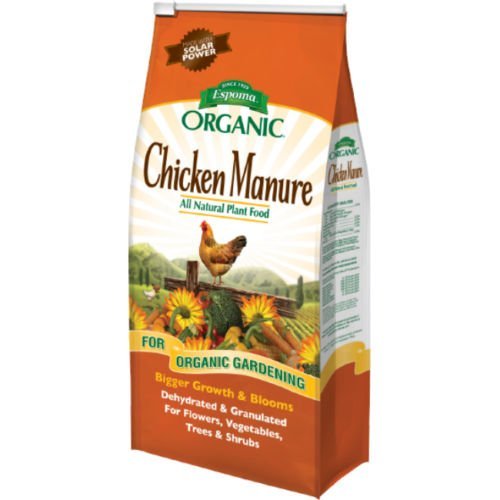 If you want to add the cheerful disposition of sunflowers to your backyard, you have probably already scouted a sunny location. But, you might still be wondering what the best soil for sunflowers is. We’ve researched the ideal soil conditions needed for optimal sunflower growth to get the answer for you.
If you want to add the cheerful disposition of sunflowers to your backyard, you have probably already scouted a sunny location. But, you might still be wondering what the best soil for sunflowers is. We’ve researched the ideal soil conditions needed for optimal sunflower growth to get the answer for you.
Sunflowers flourish when planted in a nutrient-rich, loam soil with a slightly acidic to alkaline pH of 6 to 7.5. Fertilizing sunflowers can promote growth, but is not essential for sunflowers in most soil conditions.
Keep reading, and we’ll discuss how to prepare and fertilize the soil where you intend to plant so you can grow healthy sunflowers.
What is Loam Soil?
Loam soil is comprised of relatively equal parts of sand, silt, and clay. Capable of retaining nutrients and water, loam soil is ideal for gardening because it is permeable enough to provide adequate drainage. Plants like sunflowers thrive in loam soil because steadfast taproots can easily penetrate the silty, sandy texture.
How Deep Should the Soil be for Sunflowers?
Prepare your garden for sunflowers by tilling roughly 2-feet deep into loam soil. Because the sunflower’s emerging taproot can easily penetrate loosed soil, tilling promotes initial growth for healthy plants. Taller varieties of sunflowers can produce a taproot that reaches 1-1/2 to 2 feet in length beneath the ground.
When the soil temperature reaches between 55°F and 60°F, it is the best time to sow sunflowers, typically mid-April through July. Sunflowers are a great succession crop. By planting either several varieties or multiple sowings, you can enjoy plentiful blooms and ample harvest throughout the growing season.
Plant sunflower seeds directly into the ground, between 1 and 2 inches deep. Form rows between 2 and 3 feet apart. Refer to spacing recommendations for the specific variety of sunflowers that you are planting.
Should You Fertilize Sunflowers - and How?
Providing a nutrient-rich soil will encourage sunflower growth, to produce robust stems, bountiful blooms, and hearty seeds. Because sunflowers grow rapidly, using fertilizer is recommended, especially for sandy, thin soils, and drier climates.
Agricultural research suggests that sunflowers are most susceptible to nitrogen levels and boron deficiency in the soil. Increased nitrogen levels in the soil can increase plant height and vegetation growth, but too much nitrogen could delay flowering and cause sunflowers to be more susceptible to disease. Low levels of boron result in hollowed seed formation.
The general rule of thumb for backyard gardeners who want to fertilize sunflowers is to add either composted manure or commercial fertilizer during planting.
Composted Manure
Composted manure, or animal feces, is an organic material used to increase the nutrient levels by slowly releasing valuable nitrogen, phosphorus, and potassium back into the soil. The composting process cleanses the manure of any potentially harmful parasites. Tilling composted manure into the ground also promotes water retention and aeration.
The nutrient level of the manure will vary slightly depending on animals’ diets. Cow manure is commonly used because it has a sufficient supply of nitrogen, phosphorus, and potassium.
Click here to find this on Amazon.
Chicken manure has the highest supply of nitrogen, phosphorus, and potassium compared to cow, horse, and goat manure because chickens have an extremely varied diet.
Click here to find this on Amazon.
You can find composted manures readily available at most garden centers, or connect with a local farmer and start your compost in your backyard. Get started by checking out our blog, “Compost Pile VS Bin - Which is Right for You?”
Fertilizer
When you use commercial fertilizers, you know exactly which nutrients are being added to the soil. Slow-release, granular fertilizers are recommended for sunflowers. Because the contents are highly concentrated, you need only apply a small amount of fertilizer to prevent over-fertilization.
Till fertilizer into the soil (8-inches deep) during planting time. Always follow the instructions provided.
Specially formulated to help grow healthy plants, use Miracle-Gro on sunflowers for up to 3-months of nutrient release.
Click here to find this on Amazon.
Slow-release Milogranite provides a nitrogen supply for your sunflowers for up to 10-weeks when tilled into your soil.
Click here to find this on Amazon.
Check out our blog, “How Tall Can A Sunflower Grow?” to learn the highest expectations for healthy plants.
How Often Should I Water Sunflowers?
Sunflowers are thirsty plants, so you will need to provide an ample water supply. Allow water to saturate deep into the soil near the base of the plant, to quench the taproot.
You should provide sunflowers with approximately 2-gallons of water each week. Particularly in drier climates, it can be helpful to establish a daily watering routine to encourage young plants to grow. It is best to water your sunflowers during either the early morning or late evening hours, to reduce the risk of evaporation.
If your garden climate gets rain several times throughout the week (1 to 1-1/2 inches), you might not need to supplement water.
Spreading a layer of mulch (2 to 3 inches deep) around the base of sunflowers can help to keep the soil moist by reducing evaporation during the summer growing season. Mulch also discourages weeds from growing in your sunflower patch.
Are Sunflowers Good for the Soil?
Growing sunflowers can not only help to enrich the soil between crops but can also be used as a method of restoring soil after contamination.
Crop Rotation
A popular choice of mid-western farmers to plant for agricultural crop rotation, sunflowers can help to prevent soil erosion, minimize weeds, and maintain nutrients and water in the soil between growing seasons.
Harvested for the use of floral bouquets, edible seeds, and oil production, sunflowers add a financially beneficial crop to the rotation.
Phytoremediation
Sunflowers are powerful soil healers because these plants can absorb and metabolize toxins from the soil. Environmental scientists have begun to plant sunflowers for phytoremediation, or the process of removing harmful metals, radioactive isotopes, and inorganics from soil and groundwater. Phytoremediation is a cost-effective, natural cleansing process.
Sunflowers used for phytoremediation cannot be grown for agricultural purposes. Instead, at the end of the sunflowers’ lifespan, the plants must be harvested and discarded because they now contain harmful chemicals.
Now that you know the best soil conditions for sunflowers, you can be sure to keep these plants healthy and happy in your backyard.




